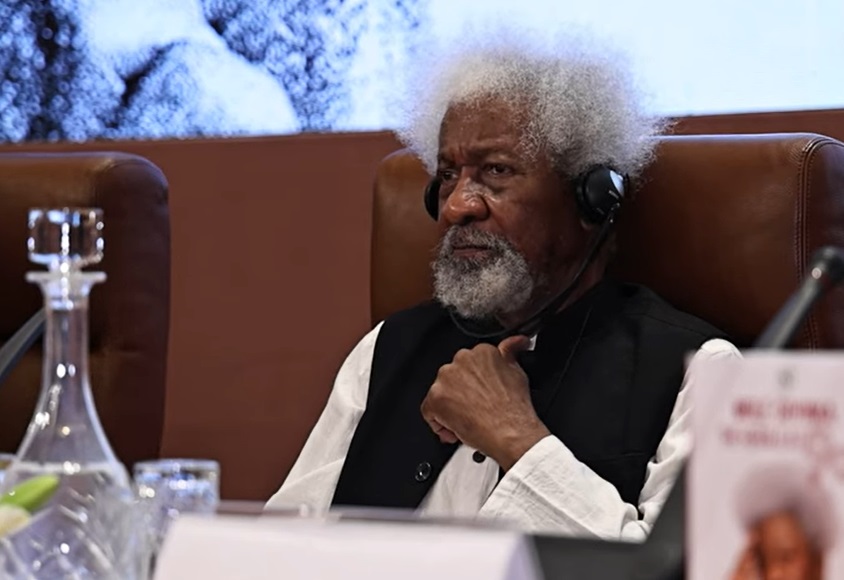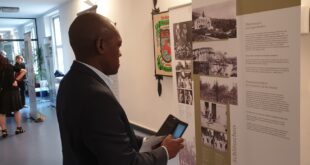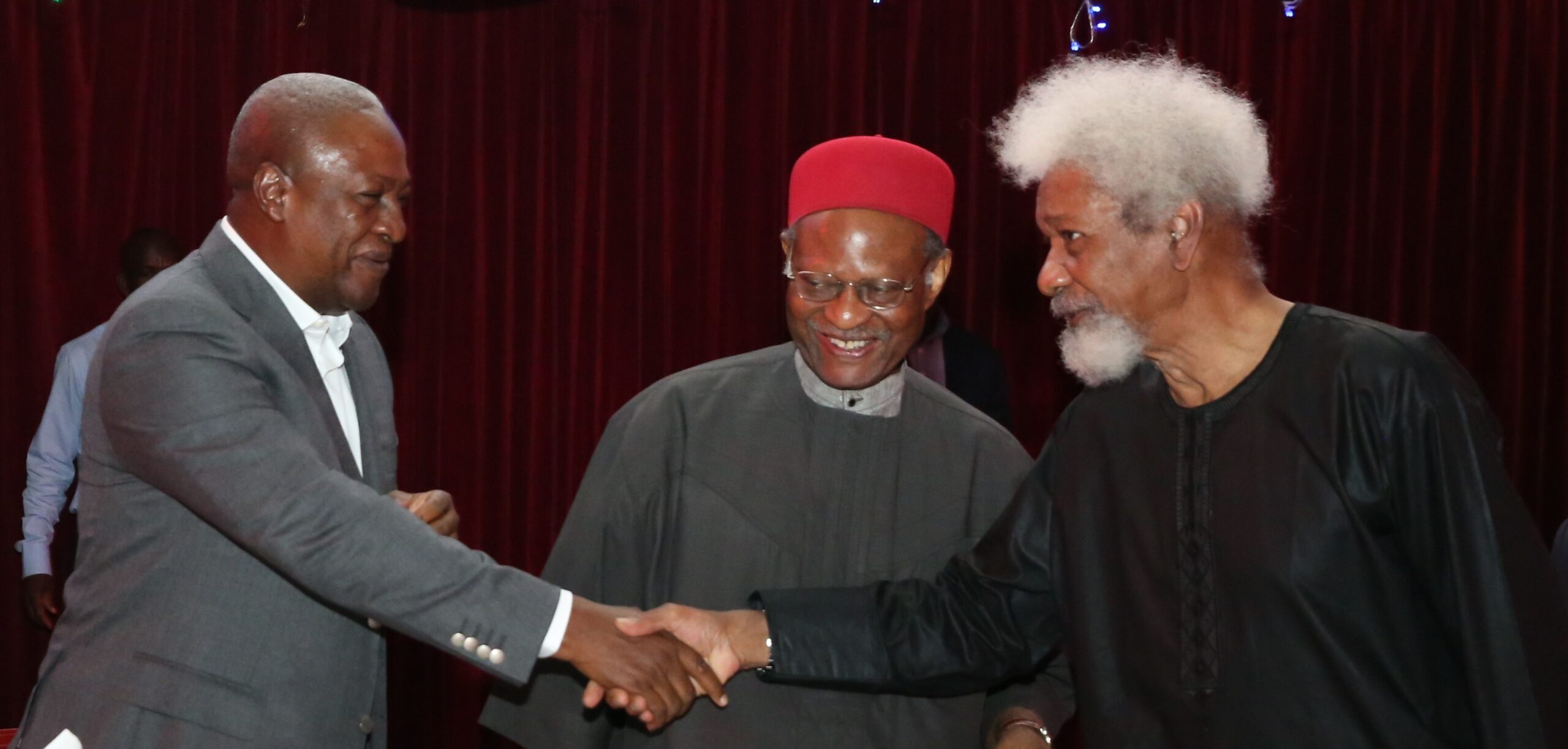For a continent whose merits have been overshadowed by wars, natural disasters, poverty and human displacements, the Nobel Prize for literature awarded to the Nigerian Wole Soyinka in 1986 must have come as a shock to those audiences with little knowledge of the presence of a wealth of contemporary African literatures.
This shock could only be the result of years of negligence by the rest of the world, which was more interested in the anthropological, historical and socio-political fields of the African studies than in the literatures of its peoples.
It is then no wonder that a succession of Nigerian and African literary critics expressed some misgivings after the Nobel Prize was awarded to Soyinka.
Chinweizu Orizu, a Nigerian literary critic, was one of the most vocal critics who questioned the essence of the prize as he insisted that: “Africa does not need the cultural disorientation and subservience which Western prizes promote.”

This criticism was not only directed at the jury, but also towards the West which had completely forgotten the African continent in the 83 years since the Nobel Prize’s inception.
It is not as if works of fiction had not been written by Africans. Excellent books such as the Nigerians Amos Tutuola’s The Palm-Wine Drinkard, Cyprian Ekwensi’s People of the City, Chinua Achebe’s Things Fall Apart; Camara Laye of Guinea’s L’enfant Noir; the Cameroonians Mongo Beti and Ferdinand Oyono’s Le pauvre Christ de Bomba and Une Vie de Boy respectively; and Cheikh Hamidou Kane of Senegal’s L’aventure ambiguë, are some of the examples of the wealth of African literatures produced by highly gifted African writers between the 1950s and 60s, and which showed great variety in subject matter, in style of presentation and in high levels of skill and accomplishments.
The jury’s choice of Soyinka in 1986 indicated an acceptance of the need to bring the African continent out of its literary isolation.
In the nearly 40 years since the Nigerian author received the highest global literary honour, three African authors have been awarded the Nobel Prize: Naguib Mafouz (Egypt, 1988) Nadine Gordimer (South Africa, 1991) and JM Coetzee (South Africa, 2003).
These authors represent the racial diversities present on the African continent. Despite the fact that they write from distinct backgrounds, they were awarded the prize for their commitment to social justice and democratic progress in their respective countries.
Their actions have inspired those silenced by their authoritative governments to defy persecution and to make their plights known to the rest of the world.
The Nobel laureates have further contributed to the growth of African literatures today because they encourage other aspiring authors to be productive and to take active part in redrawing the literary world map to include African literatures.
Also, there have been improvements in the publishing sector in Africa and there has been increased co-operation among the publishers. This has made more African titles available for submission to international book competitions organised every year across the world.
Consequently, more Africans have become recipients of literary prizes like the Commonwealth Prize, the German Peace Prize and the Caine Prize.
A two-day colloquium from 25-26 August 2006 entitled: “Twenty years after the Nobel Prize, literature, governance and development in Africa”, organised by the Association of Nigerian Authors, took place at the Obafemi Awolowo University, Ile-Ife.
A number of highly acclaimed Nigerian and African authors and critics, such as Nadine Gordimer, Biodun Jeyifo and Femi Osofisan were among those invited to take a critical look at the progress made by African literatures in the twenty years after Soyinka was honoured with the Nobel Prize.
In her paper entitled “A Tribute to Wole Soyinka,” Gordimer traced the contributions of African writers from the colonial era to the present day, saying they had enriched the lives of Africans with a literary culture.
She described Soyinka as a great writer who had, in his writings and in the conduct of his life, served the whole of humanity. “He endured imprisonment in his dedication to the fight for bread and justice, and his works attain the pure beauty of imaginative power that fulfils that other hungry need of the spirit.”
To celebrate Soyinka’s 90th birthday, events are being held across the globe with accolades being poured on this great man of letters. On Tuesday, 9 July, the Royal Academy of Morocco honoured the Nobel laureate in a special ceremony to mark his 90th birthday. The event, held in collaboration with the Pan African Writers Association (PAWA), served as a tribute to Soyinka’s immense contributions to African and global literature. Titled “Africa Celebrates Wole Soyinka in Morocco,” the roundtable discussion brought together cultural figures, academics, and diplomats. It explored Soyinka’s prolific career, highlighting his unwavering commitment to social justice and his unique voice that champions African cultures.
These celebrations express Africa’s gratitude to Soyinka. By paying tributes to this pillar of contemporary African literature, we are acknowledging his immense contributions to the growth of African literary voices.
Tomi Adeaga
 THE AFRICAN COURIER. Reporting Africa and its Diaspora! The African Courier is an international magazine published in Germany to report on Africa and the Diaspora African experience. The first issue of the bimonthly magazine appeared on the newsstands on 15 February 1998. The African Courier is a communication forum for European-African political, economic and cultural exchanges, and a voice for Africa in Europe.
THE AFRICAN COURIER. Reporting Africa and its Diaspora! The African Courier is an international magazine published in Germany to report on Africa and the Diaspora African experience. The first issue of the bimonthly magazine appeared on the newsstands on 15 February 1998. The African Courier is a communication forum for European-African political, economic and cultural exchanges, and a voice for Africa in Europe.

































